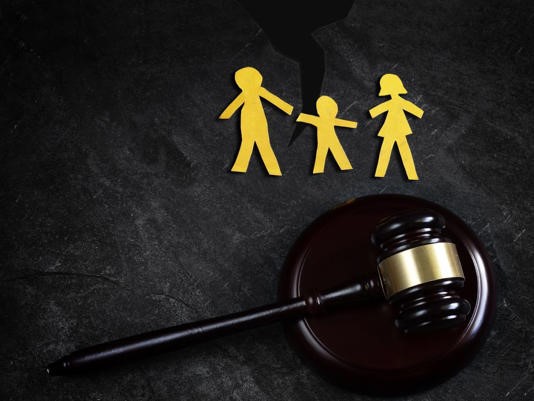Barbara Kay: Woke feminists look to eliminate men as a category of victim (msn.com)
Opinion by Barbara Kay • 1d
Published Feb 11, 2024

Barbara Kay: Woke feminists look to eliminate men as a category of victim© Provided by National Post
You may have friends — as I do — who, as parents following a separation, have suffered the anguish of seeing beloved and formerly loving children turn into hostile strangers for no apparent reason, or through no fault of their own. All too often, the child’s hostility never abates, and the bond is irreparably severed.
Parental alienation has been defined as , “A mental condition in which a child — usually one whose parents are engaged in a high-conflict separation or divorce — allies himself or herself strongly with the preferred parent (the alienating parent) and rejects a relationship with the other parent (the targeted parent) without legitimate justification.
“The mental component of this condition is the false belief that the rejected parent is evil, dangerous or not worthy of love. The behavioural component of parental alienation is the firm, persistent rejection of a relationship with the targeted parent.”
Having read dozens of parental-alienation cases, all joined by the common threads enunciated in the definition above, I understand this phenomenon to be a sadistic genre of former-partner punishment and a repugnant form of child abuse.
I was therefore incredulous to learn that a coalition of 250-plus Canadian feminist organizations recently called on Justice Minister Arif Virani to reform the Divorce Act, with a view to banning accusations of parental alienation in family law cases.
Suzanne Zaccour, director of legal affairs at the National Association of Women and the Law (NAWL), disparaged the concept as “pseudoscience,” arguing that in custody battles, fathers exploit the claim as a weapon — often, she claims, successfully — in trumping mothers’ accusations of abuse.
Gene C. Colman, managing partner of the Gene C. Colman Family Law Centre , told LegalMattersCanada that, “Parental alienation is real, despite what woke feminists have to say.” Far from being a “pseudoscience,” Colman points to “robust academic literature,” including “peer-reviewed articles, social science literature (and) a healthy body of case law authored by respected judges.”
In Colman’s view, it comes down to ideology versus evidence: on one side are feminists insisting “moms always tell the truth and dads always lie and are violent”; on the other is overwhelming evidence that this phenomenon is real.
Colman has represented both sexes, because parental alienation is a gender-neutral psychological crime, but since more mothers than fathers have sole custody, they have greater opportunity to act on the impulse.
Scientifically trustworthy research does not favour the coalition’s petition. For example, a 2023 study in the journal Children and Youth Services Review — titled, “Gender and child custody outcomes across 16 years of judicial decisions regarding abuse and parental alienation” — analyzed 500 Canadian trial level cases.
Amongst its findings: “90 per cent of abuse allegations in cases of parental alienation were determined not to be true or otherwise unsubstantiated”; of those who were found to be “abusive,” 25 were mothers and 10 were fathers; and replication studies do not support the findings of an often-cited study by opponents of parental alienation, which claimed that there is “widespread gender bias in courts’ handling of … abuse claims.”
Feminists point to the fact that the term “parental alienation” didn’t make it into the 2013 edition of the “Diagnostic and Statistical Manual of Mental Disorders” as evidence of its unscientific grounding. It’s true the words themselves were not included, but five diagnoses describing different aspects of parental alienation were, such as “child affected by parental relationship distress ” and “child psychological abuse.”
Toronto criminal defence lawyer Joseph Neuberger, principal of Neuberger & Partners LLP , has, in over 30 years of practice, seen a significant number of criminal cases arising from false allegations of abuse in the context of high-conflict divorce, his firm’s professional niche.
“The evidence that arises from these trials is clear that the complainant has been motivated to eradicate the other parent (to) gain leverage in the family court system,” he said. “The evidence that comes from the criminal trials supports the concept of parental alienation.”
In a podcast , Neuberger and his director of legal research, Diana Davison, recalled telling moments on the witness stand that point to parental alienation. In one case, during Neuberger’s cross-examination, a 12-year-old girl admitted that her mother said, “I’m very worried that (your father) will get custody of you. I can’t live without you. Will you help me get sole custody of you and your younger brother?”
He credits the disproportionate numbers of women engaging in this abusive behaviour for creating “a backlash to prevent men from defending themselves in both family court and criminal court on this issue.”
Davison told me that the coalition’s petition to erase parental alienation from custody adjudication “is an assault on what has taken decades to achieve.” She sees this as an attempt “to eliminate men as a category of victim.”
That’s a rational conclusion, because the ideology of feminism is inherently misandric. According to some feminists, mothers are far more important to children than fathers. That premise is wrong. Children want to be, and deserve to be, loved by both their parents equally.
It is cruel to indoctrinate children into hating one of their parents, and never in “the best interests of the child” — the presumed litmus test for decision-making in high-conflict cases — to pressure them into committing perjury in order to punish an ex-spouse in court.
Indifference to the traumatic effects such compelled duplicity can have on a child, which may only surface later in life, is, however, a hallmark of the alienating parent.
National Post
kaybarb@gmail.com

